Vegan Skincare Guide—Best Cruelty-Free Skincare Brands & Tips to Veganize Your Routine
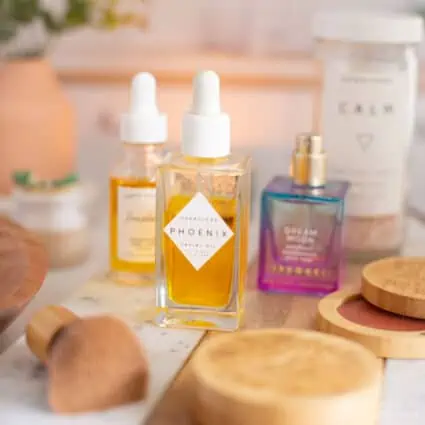
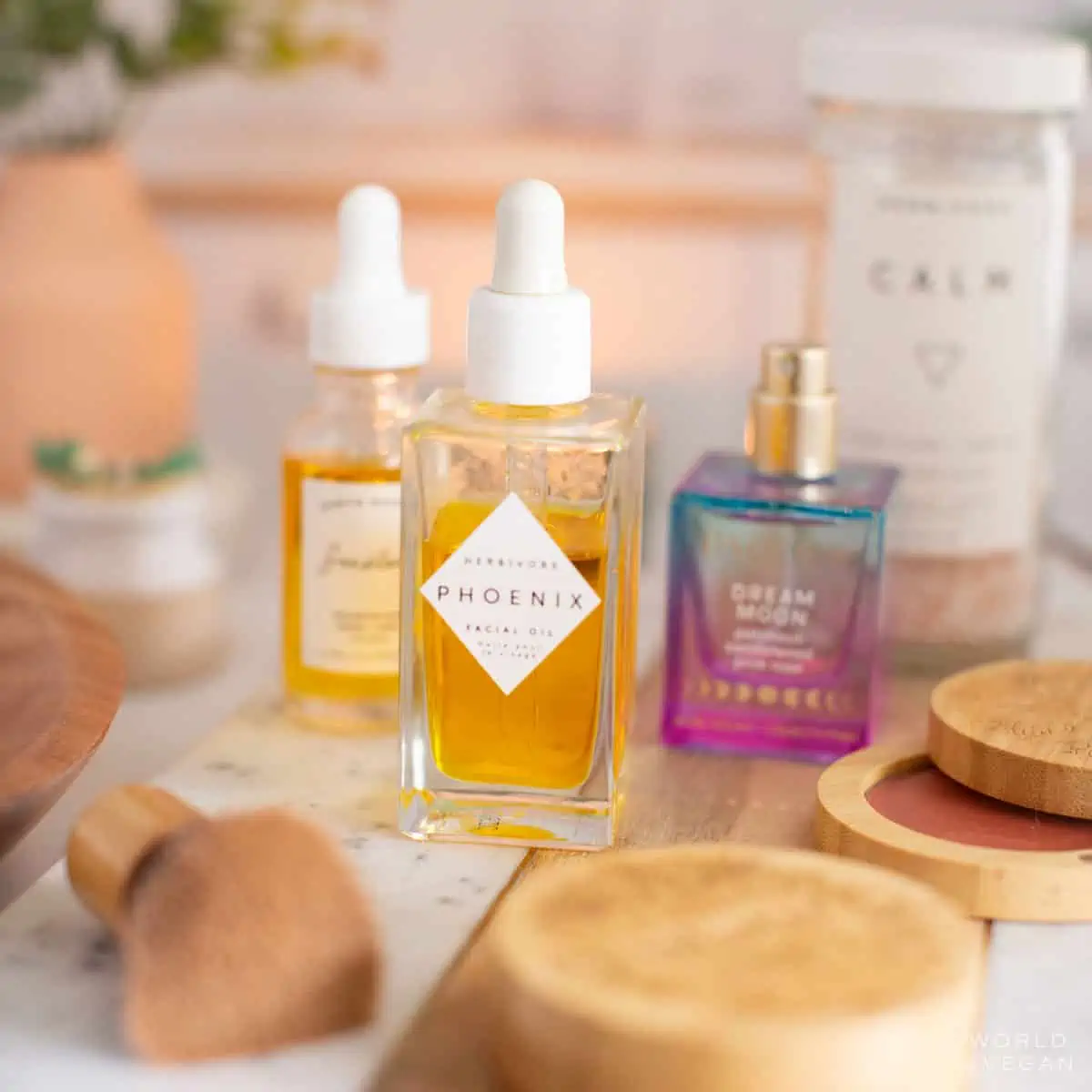
Looking to update your seasonal skincare routine? Whether your skin is downright dry, ordinarily oily, or super sensitive, it’s time to tackle the tools you use. Before you buy new beauty bottles for the bathroom cupboard, it might be a good idea to go over our vegan skincare guide. In this guide is part of our Vegan Bath, Body, and Beauty series and covers the best vegan skincare brands, how to shop for cruelty-free skincare, and how to make your own DIY skincare at home.
You might be wondering: What is vegan skincare? What do I look for? How do I get started on a new skincare routine? Which companies offer vegan skincare products? No worries, lotion-loving friends! We’ll answer all of those questions and more.
Before we start, consider the contents of your bathroom counter and muddle through your medicine cabinet. Dig out all of your cleansers, moisturizers, foundation, sunscreens, lip balms, soaps, scrubs, masks, and serums and pile them in front of you. Are any of them clearly marked as vegan or cruelty-free? It’s totally okay if you can’t figure it out or are too afraid to look. Let’s investigate together!
Table of Contents
Table of Contents
- What Is Vegan Skincare?
- What Is the Difference Between Regular and Vegan Skincare?
- 100% Vegan Skincare Brands
- Cruelty-Free Skincare Brands with Vegan Options
- Best Eco-Friendly Vegan Skincare Brands
- Best Vegan Skincare for Men
- Vegan Beauty Subscription Boxes
- Which Skincare Ingredients are NOT Vegan?
- Are Collagen and Elastin Vegan?
- Is Vegan Skincare Better?
- Are More Expensive Products Always A Better Choice?
- How Do I Start a New Skincare Routine?
- What Else Should I Add to My Vegan Skincare Routine?
- DIY Vegan Skincare
- Vegan Beauty & Skincare Podcast Episode
- Looking For More Vegan Beauty Guides?
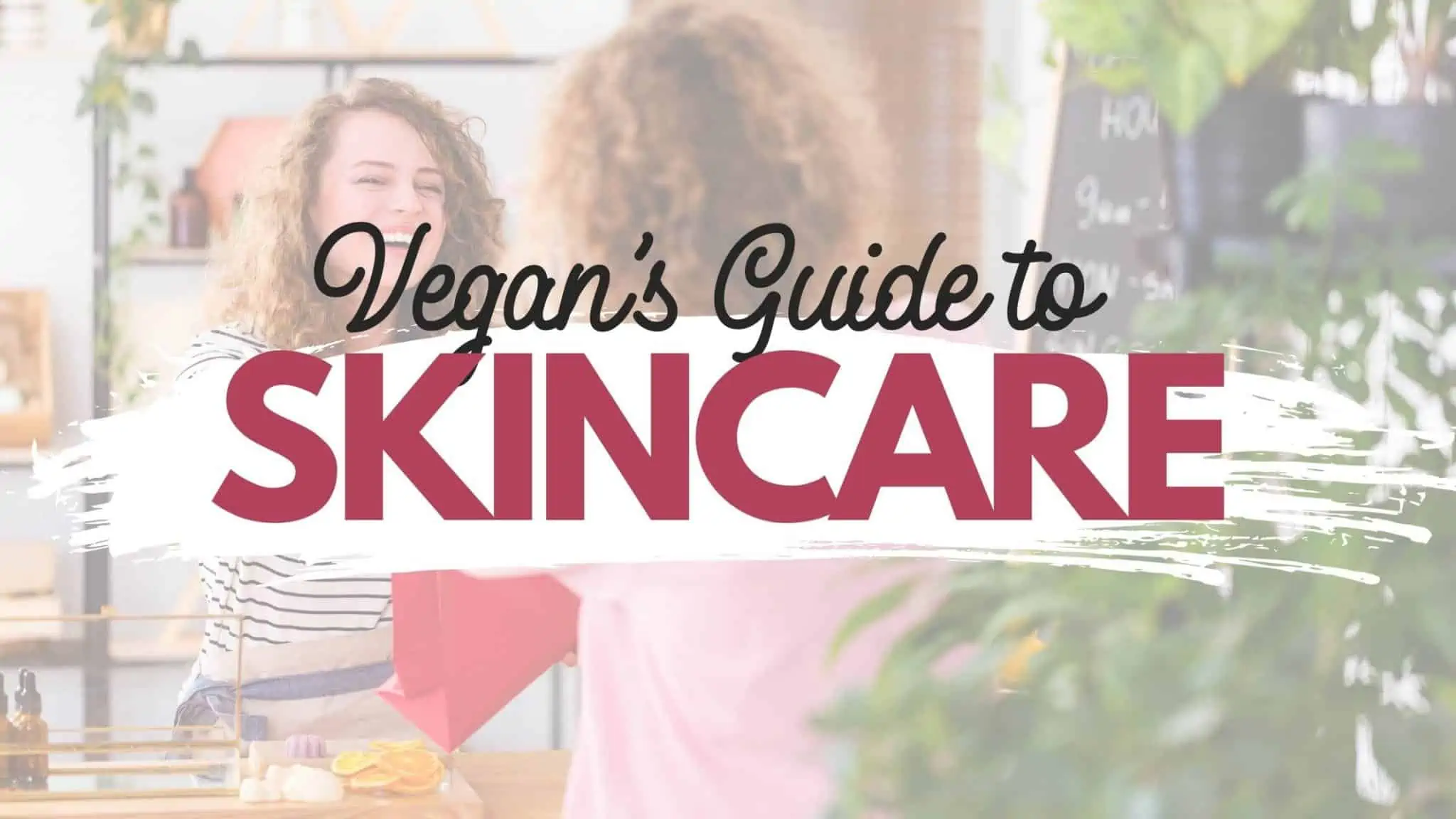
What Is Vegan Skincare?
To start, we’ll keep it simple. Here’s what it means to be vegan. And here is why so many people choose to be vegan. At World of Vegan, we consider skincare to be vegan if:
- The product is made without any ingredients that come from an animal.
- The item is also cruelty-free, meaning that it was produced without the use of animal testing.
Although there are other issues to consider such as natural vs. synthetic, organic vs. non-organic, or even the environmental impact of certain ingredients, these two principles are the most important in identifying if skincare is vegan or not.
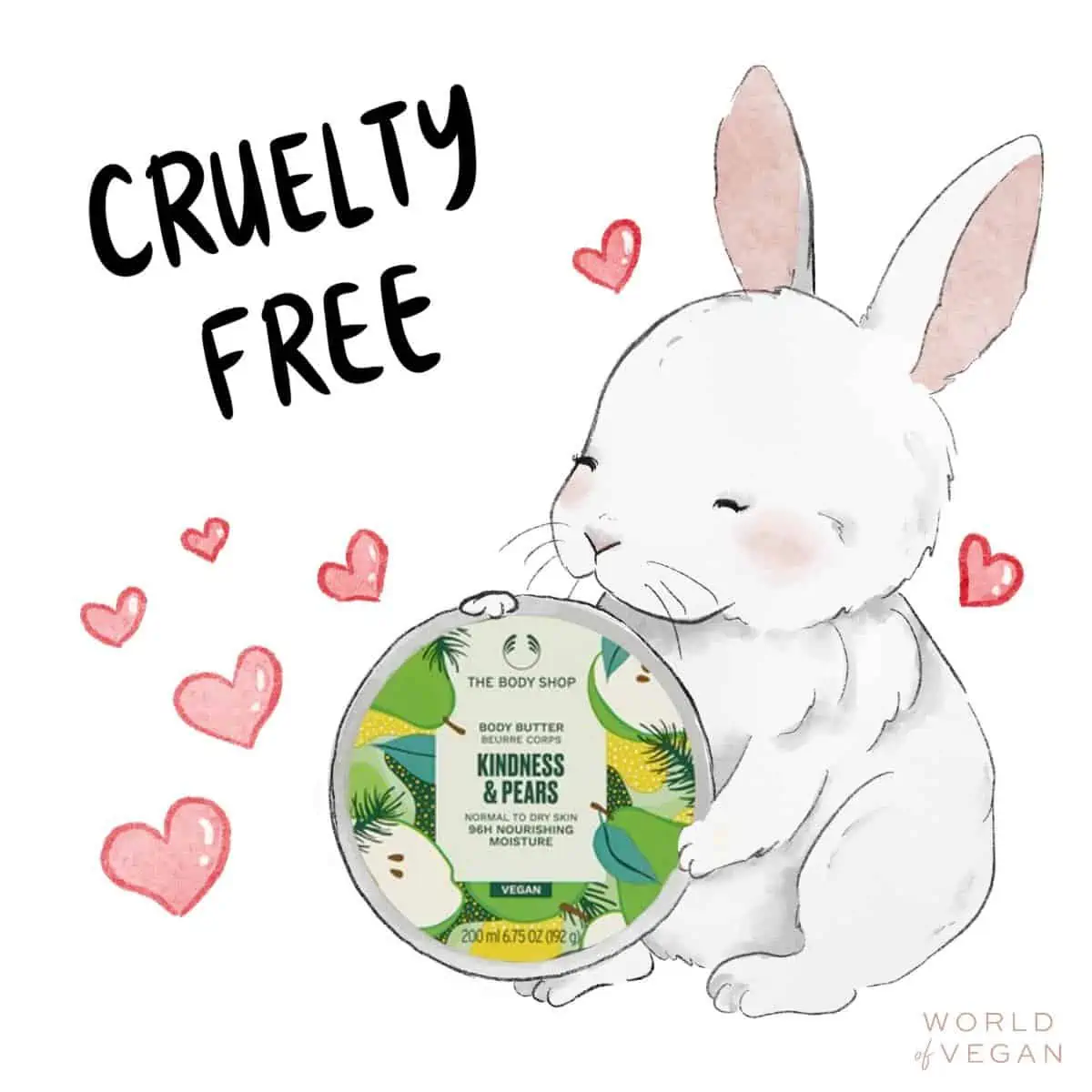
What Is the Difference Between Regular and Vegan Skincare?
When we think about skincare, animal products don’t immediately come to mind. At least, not like they do with food or drink. It’s really easy to overlook the fact that many basic ingredients found in the most popular beauty products are not vegan.
‘Regular skincare’ might refer to readily available, over-the-counter, and mainstream products which may or may not include vegan-friendly ingredients. On the other hand, ‘vegan skincare’ can easily be misconstrued as something elite, expensive, and hard to find.
The only thing that differs between ‘regular’ and vegan skincare are the ingredients. Our goal is to find an option that keep our skin gorgeous and glowing, without anything to do with the animals we love.
100% Vegan Skincare Brands
Which Skincare Brands Are Vegan And Cruelty-Free?
Because new skincare brands coming out on the market all the time, these are just a few of our tried-and-true favorites. We’ll be updating this list often, so make sure to check back when you’re searching for new vegan skincare options.
- Activist Skincare
- Acure
- Arbonne
- Aveda
- Beauty Without Cruelty
- Biossance
- Bulldog
- Coconut
- Cover FX
- Dear Dahlia
- Derma-E
- Dr. Paw Paw
- Earth Harbor
- Eco Tools
- E.L.F.
- Elate Cosmetics
- Ellovi
- Emani
- Ethique
- Everyday Minerals
- Grace & Stella
- Fleur & Bee
- Fourth Ray Beauty
- Franklin & Whitman
- Herban Cowboy
- Herbivore Botanicals
- Hylunia
- Inika Organic
- Juice Beauty
- Made by Sunday
- Mad Hippie
- Maelove
- Meow Meow Tweet
- Not to Die For
- Osea
- Pacifica
- Plant Department Skincare (Plant DPT)
- Province Apothecary
- Puracy
- Sukin (Australia)
- The Body Shop
- The Ordinary
- Thrive Causemetics
- Upcircle
- Versed
- Wildling
- Youth to the People
- Zatik Natural (100% Organic)
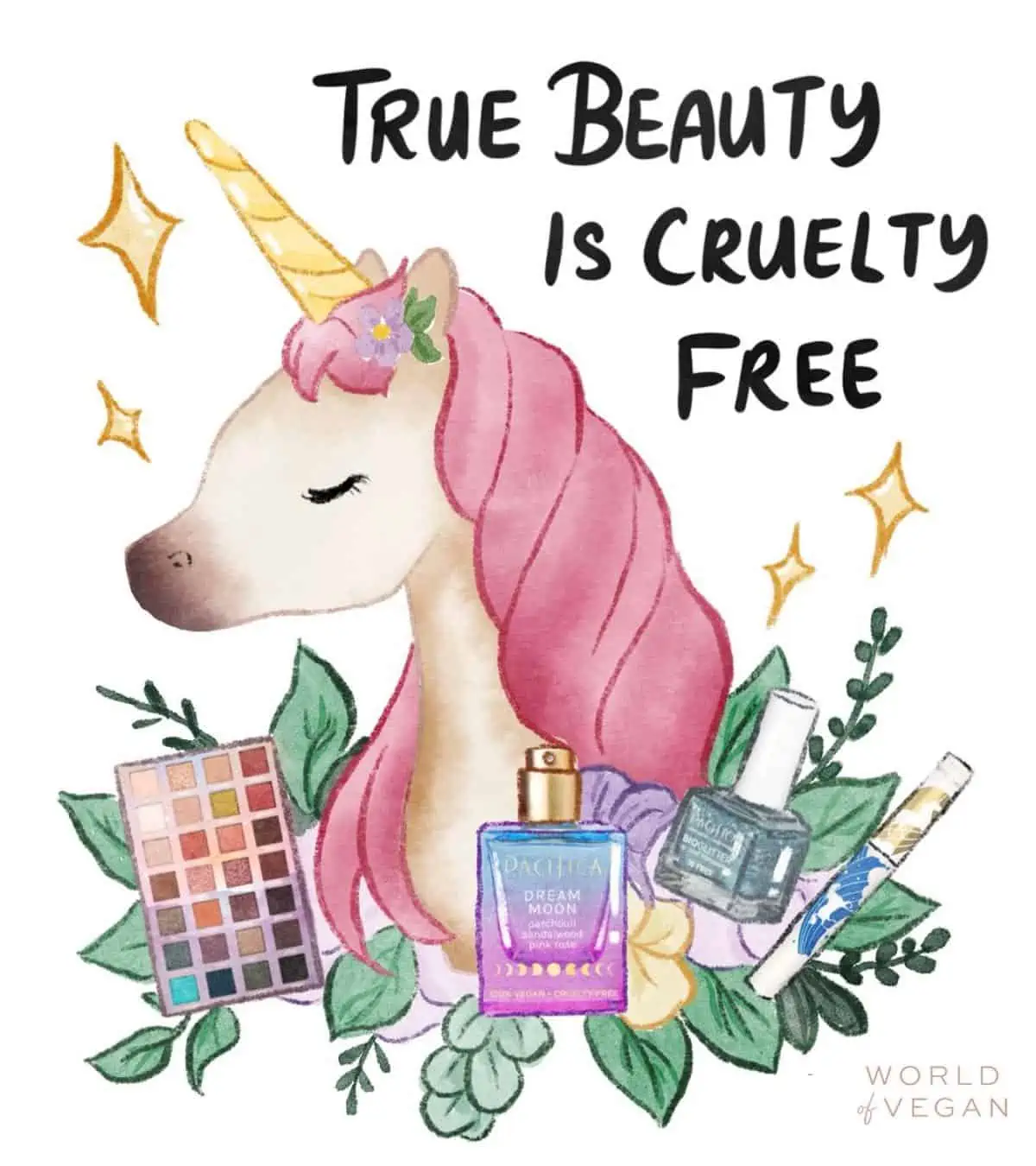
Cruelty-Free Skincare Brands with Vegan Options
- 100% Pure
- Aavrani
- Alba Botanica
- Allies of Skin
- Andalou Naturals
- Avalon Organics
- Balance Me (UK)
- Cocokind
- Desert Essence
- Ecco Bella
- Every Man Jack
- Glossier
- Glow Recipe
- Green Goo
- Indie Lee
- Kaja Beauty (sold at Sephora)
- LUSH
- Mychelle Dermaceuticals
- Nourish Organic
- psa
- Ursa Major VT
- Yes to
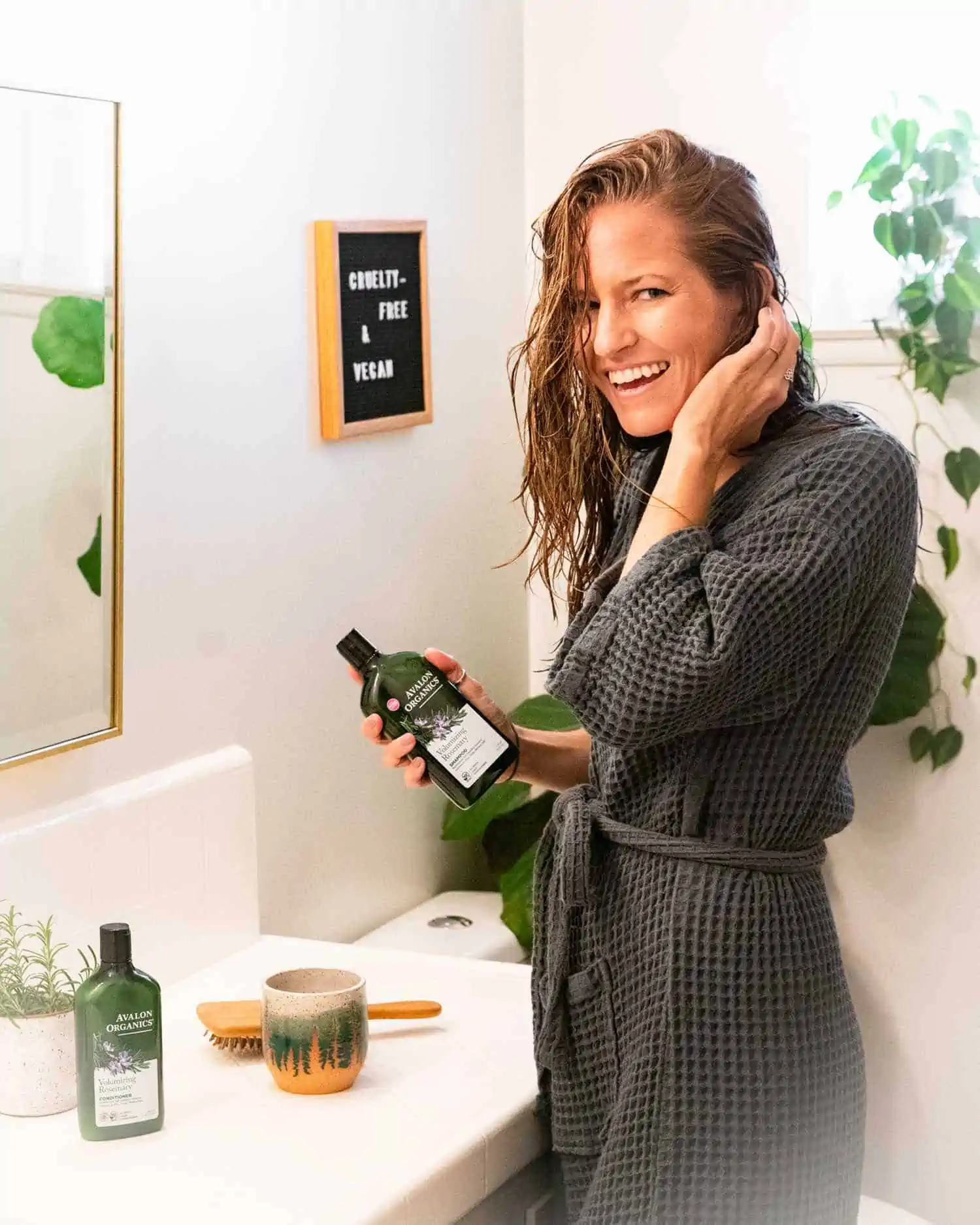
Best Eco-Friendly Vegan Skincare Brands
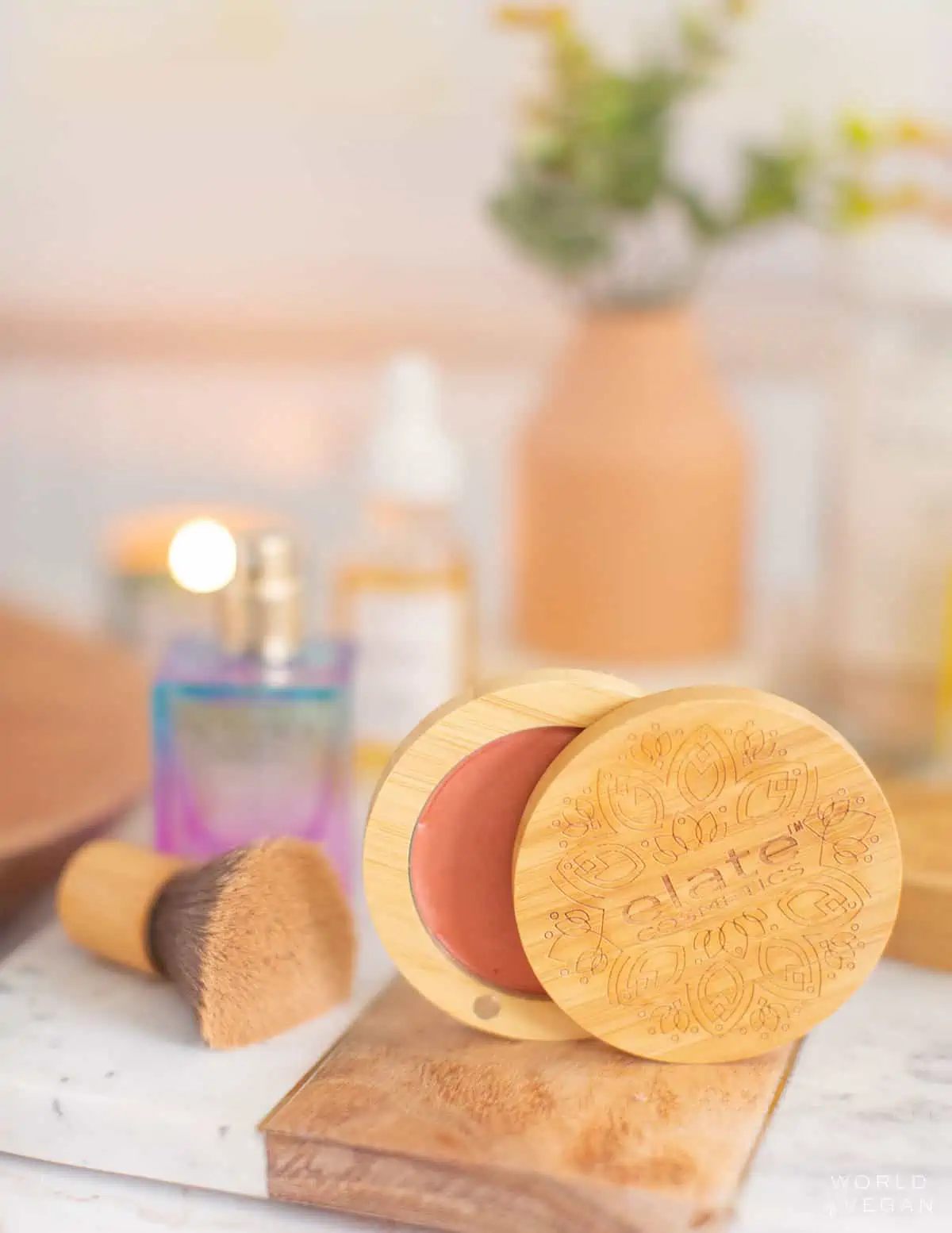
Best Vegan Skincare for Men
- Bulldog (100% vegan)
- Herban Cowboy (100% vegan)
- Every Man Jack
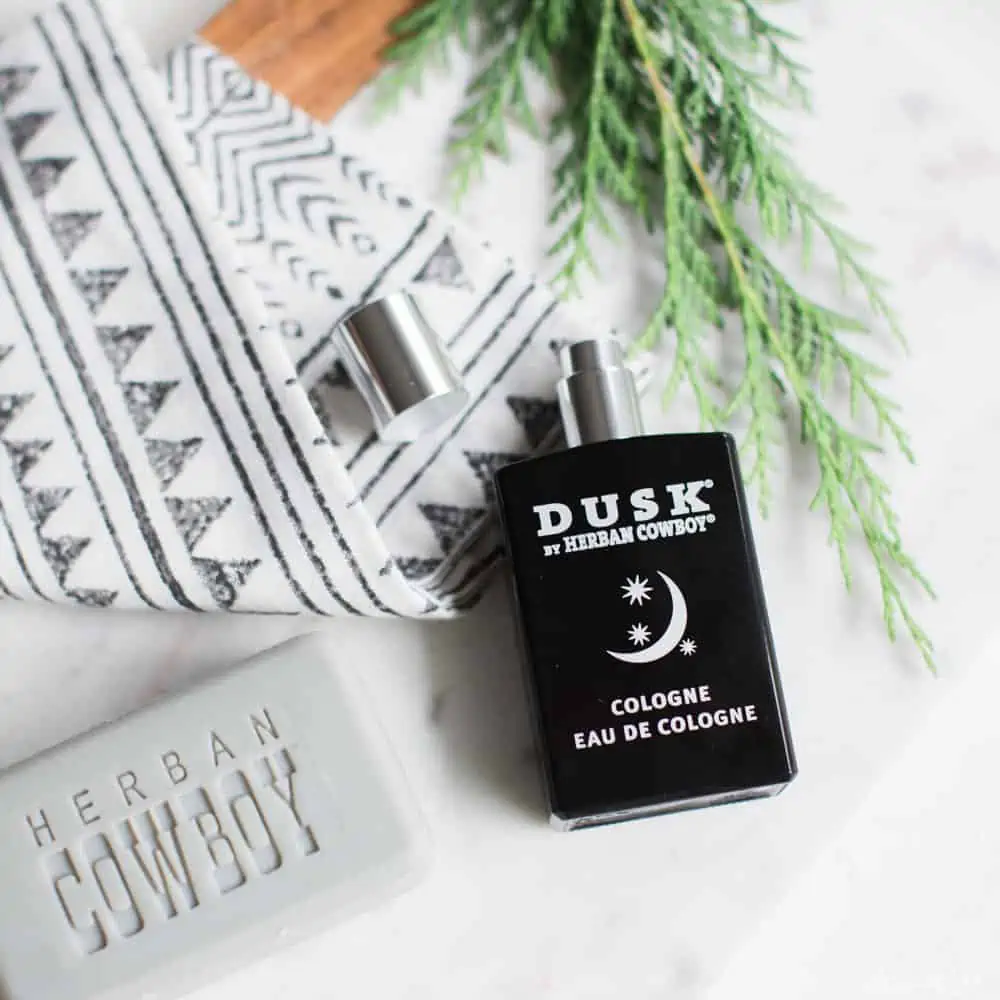
Vegan Beauty Subscription Boxes
If you’re like to explore vegan skincare and beauty brands and products without investing in full-size products, consider subscribing to a vegan beauty box. Here are the three most popular vegan beauty box options today:
As a subscriber to a vegan beauty subscription box you’ll receive a sampling of vegan products every month—usually a mix of skincare, body care, and makeup—at a fraction of the full retail price. This is a great option for anyone who hasn’t yet landed on their favorite vegan skincare products and brands, or if you’l like to build up a collection.
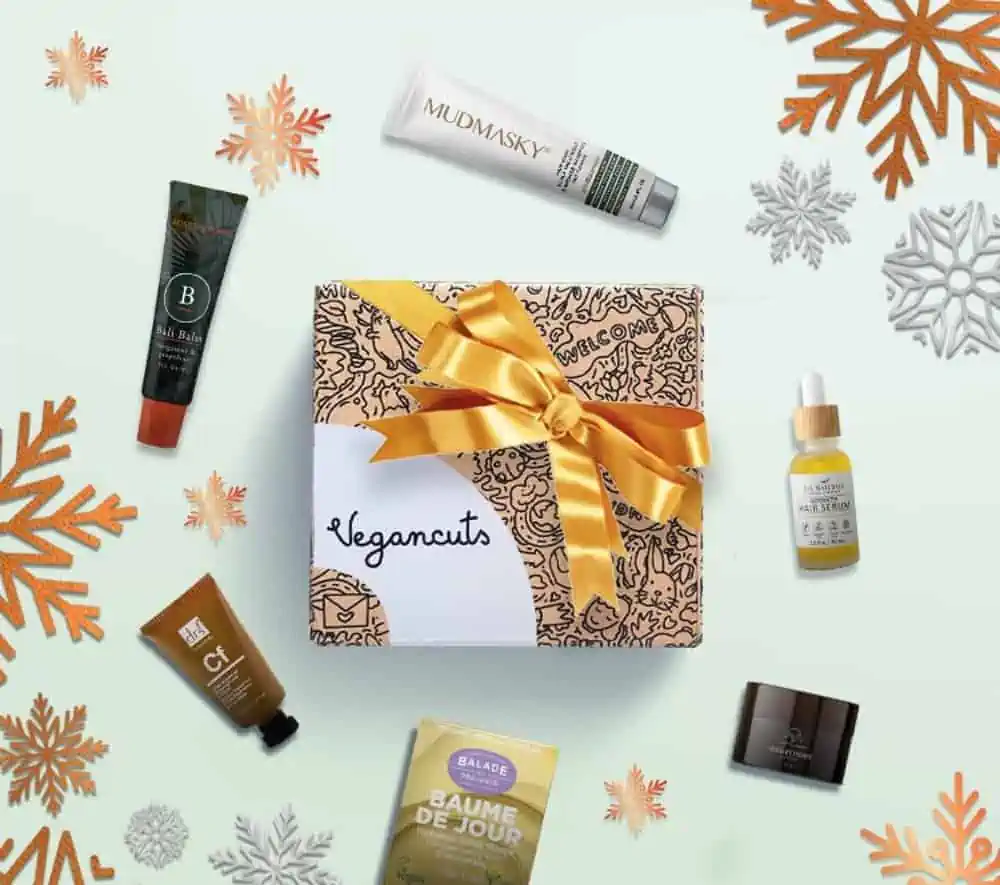
Which Skincare Ingredients are NOT Vegan?
While this is not a complete list of all of the skincare ingredients that are not vegan, these are the most commonly known and used in commercial skincare products.
- Lanolin – Used to soften and moisturize, this emollient is made from sheep’s wool, and can easily be swapped with a plant-based oil (olive, jojoba, etc.) or butter (like coconut or shea)
- Beeswax – A natural wax produced by honey bees, it helps to keep liquids and solids together in a mixture, and can be substituted with a plant-based wax such as soy, candelilia, or carnauba.
- Glycerin – Traditionally made using animal fat, this moisturizing ingredient can be replaced by a vegetable glycerin instead.
- Squalene – This additive is often used for anti-aging products and is primarily made from shark liver oil. You can also find plant-derived forms from olives or wheat germ.
- Stearic Acid – An emulsifier and emollient that is usually derived from an animal’s stomach (such a pig, cow, or sheep). It can simply be replaced by a plant-based stearic acid, which would also be less irritating to the skin.
- Oleic Acid (aka Tallow) – Though this skincare softener can be made using plant-derived fats (like coconut, almond, or olive), it’s most commonly made from animal fat.
- Casein (or Sodium Caseinate) – A conditioning treatment that is made with cow’s milk. An alternative can be created by using a plant-based milk instead.
Are Collagen and Elastin Vegan?
Until recently, collagen and elastin have been entirely animal-based. Both collagen and elastin are proteins extracted from the various parts of an animal, usually a cow or horse. Collagen is made with fibrous proteins of the animal tissue, bone, skin, or ligaments, while elastin is created from the muscles, ligaments, and aortas of animals.
But, thankfully, science is truly coming along in the skincare world. There are now plant-based collagen options manufactured using yeast and bacteria. Pacifica has a range of vegan collagen skincare utilizing this new technology. In addition, the company, Geltor, has taken advantage of the fermentation process to invent a PETA-approved elastin ingredient for use in skincare.
Yay for science!
Is Vegan Skincare Better?
Often, but not necessarily. You would think that any vegan skincare product would be the better choice (and when it comes to the animals, it always is!), but it really depends on how these non-animal ingredients interact with your own skin or skin type. Also, keep in mind, that every person is unique and reacts differently to certain ingredients.
Sometimes, using a petroleum-based product can wreak havoc on the skin due to the man-made chemicals. On the other hand, if you have sensitivities to nuts or seeds, you might want to be extra careful of natural oils that come from almonds, coconut, or sesame. What may work for one person may not work for another. There’s a lot of trial and error, but it’s well worth it in the end.
For the best chance at high-quality vegan skincare, here’s what to strive for:
- Easy-to-understand ingredients (like natural oils, aloe vera, and plant-based waxes)
- Very few, if any, chemical additives or preservatives (which tend to be irritating to the skin)
- Organic or locally made (ideal, but not necessary for clear, healthy skin)
Are More Expensive Products Always A Better Choice?
It might be surprising to learn that many of the low-end skincare companies have a number of accidentally vegan products, while many of high end, more expensive brands have less. Why is that? It’s mostly due to the fact that lower-end brands use synthetic ingredients such as mineral oil, as the basis of their products.
Since mineral oil is an industrial by-product, it’s inexpensive and readily available. The high-end companies tend (not always, of course) to use more “natural” ingredients. Sadly, those end up being focused primarily on animal-based, rather than plant-based, substances like beeswax, collagen, lanolin, etc.
Sadly, there isn’t an easy “yes” or “no” answer to this question. Some affordable vegan skincare products may have better options than more expensive brands, or vice versa. It truly depends on the company and product itself. This is a great opportunity to do a bit of extra investigating on your own. (Though, we’re happy to give you a little guidance.)
How Do I Start a New Skincare Routine?
When you’re embarking on a new beauty routine, it’s best to stick with the basics. After that, you can add on whichever plumping and pampering practices you like! If you’re anything you’re like us, you’ll find it fabulously fun to experiment and observe the results.
First, choose a vegan makeup remover (if you wear makeup), a cleanser, and a vegan moisturizer. Then, follow these simple steps every evening before bed (very important) and in the morning, if you wish.
- Remove Makeup – Make sure to use a cloth or product especially made for removing make up. In a pinch, a simple base oil (such as almond, coconut, or jojoba) will do the trick. Massage a nickel-sized amount of oil onto dry skin for about 30 seconds and wipe off lightly with a cloth (never use paper towels or toilet paper––they’re much too drying on the skin).
- Cleanse – Wet skin using lukewarm water, use your fingers to apply cleanser, and gently massage into the skin for a minute or two. Rinse with lukewarm or cool water. Pat with a soft towel.
- Moisturize – Before your face is completely dry, you can apply the vegan moisturizer (amount should be shown on the product) all over the skin using gentle upward and outward motions.
What Else Should I Add to My Vegan Skincare Routine?
These alluring extras may a bit of brightness and a touch of TCL when your skin needs it the most. Feel free to pick and choose the products that suit you best. It’s all about you and what you love.
- Toner – You can use this daily to remove any traces of dirt or impurities left in the pores of your skin after you wash your face. It also helps to restore your skin’s pH level, smooths rough patches, and aids in improving skin tone.
- Exfoliation – This process removes dead skin cells from the surface of your skin using either a physical tool, cleansing grains, or chemicals. Be careful to choose the best option for your skin-type. Some chemical exfoliants can be harsh on the skin.
- Serum – They sound so magical, don’t they? A serum is designed to deliver high concentrations of vitamin-rich ingredients. A few drops pressed into the skin before applying cruelty-free moisturizer is all that you need.
- Eye Cream – As you get older, the skin around your eyes thins and causes drooping. Totally natural, but also a bummer. To keep this area hydrated, try adding a tiny, pea-sized amount of cream around the eyes. Apply with your ring finger (will give the least amount of pressure) in slow, circular motions.
- Lip Balm – (Our favorite!) This is probably the least necessary before bed, but also the most luxurious. Adding a super smooth swipe to your lips will make them even softer and more supple in the morning.
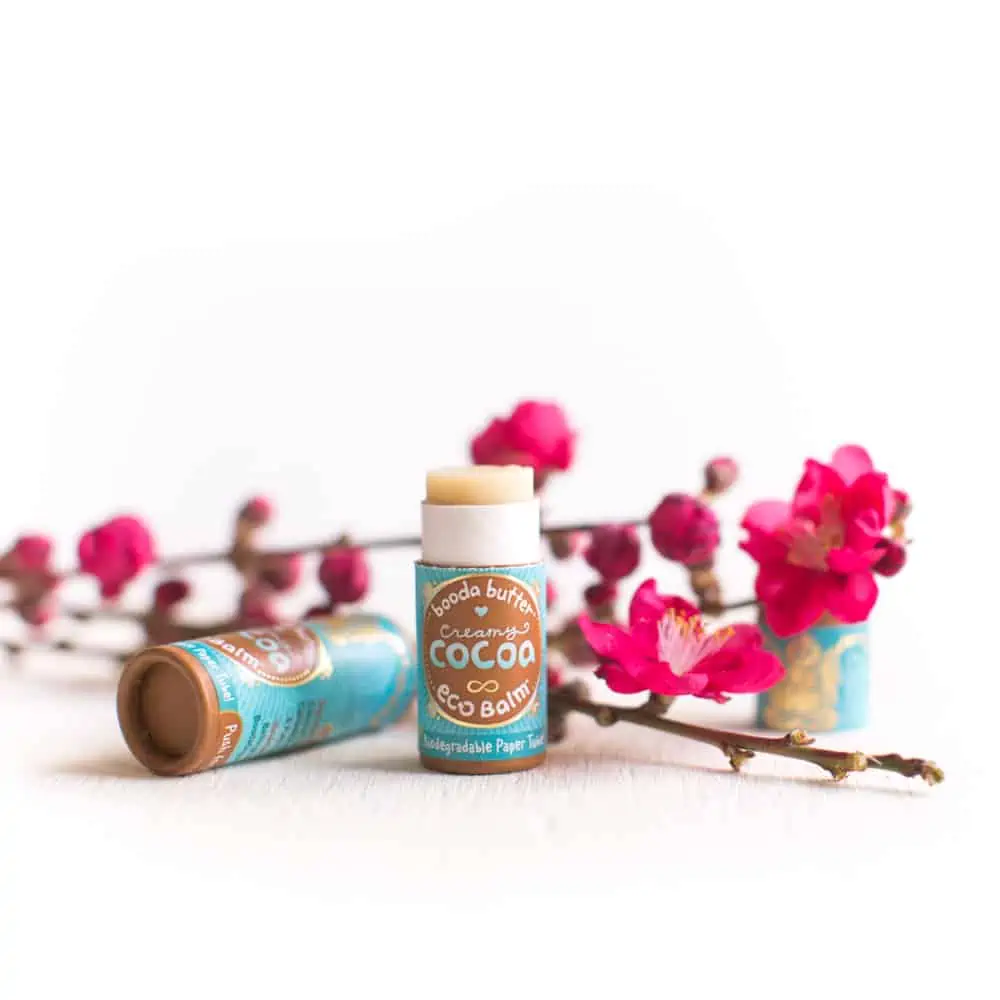
DIY Vegan Skincare
This suggestion is for all of you DIY-lovers out there! While there are many amazing options for vegan and cruelty-free skincare in stores and online, making your own can be even better. If you have the time (or just love to experiment with creating concoctions), try making your own vegan skincare!
Recipes for homemade products can range in difficulty from super easy to craftily complicated. It’s totally up to you to choose the product that’s right for you. We suggest starting out small. Find a skincare recipe with only one or two ingredients and see if you like it.
You might find that you love making your own beauty essentials so much that you never want to buy them again. Or, you may find this process incredibly tedious and not worth your time. You’ll never know unless you give it a try.
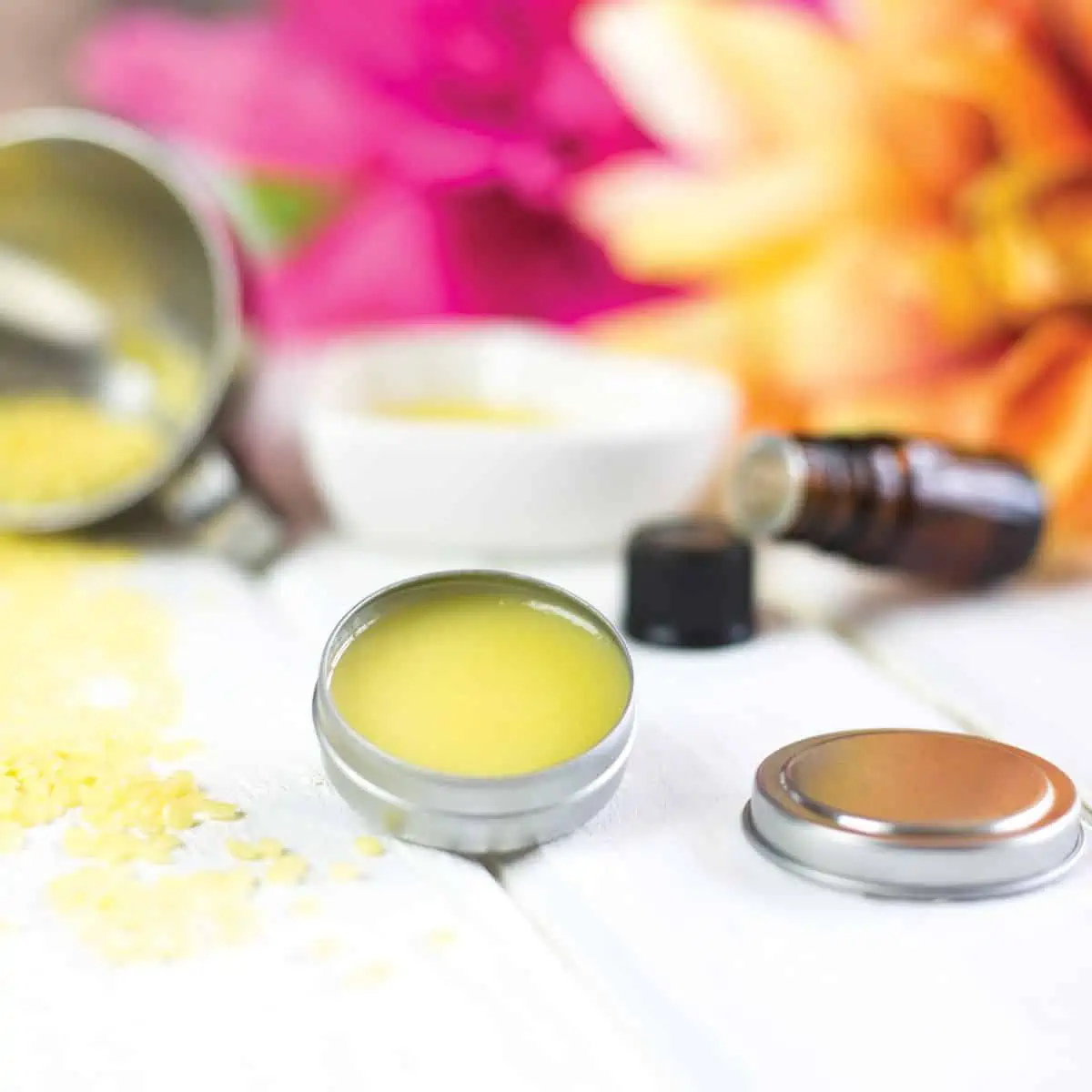
Here are a few of our favorite books for do-it-yourself vegan skincare:
- The Compassionate Chick’s Guide to DIY Beauty: 125 Recipes for Vegan, Gluten-Free, Cruelty-Free Makeup, Skin and Hair Care Products by Sunny Subramanian, founder of Vegan Beauty Review
- Plant-Powered Beauty: The Essential Guide to Using Natural Ingredients for Health, Wellness, and Personal Skincare by Amy Galper
- Homemade Organic Skin & Body Care: Easy DIY Recipes and Natural Beauty Tips for Glowing Skin (Body Butters, Essential Oils, Natural Makeup, Masks, Lotions, Body Scrubs & More – 100% Cruelty Free) by Carmen Reeves
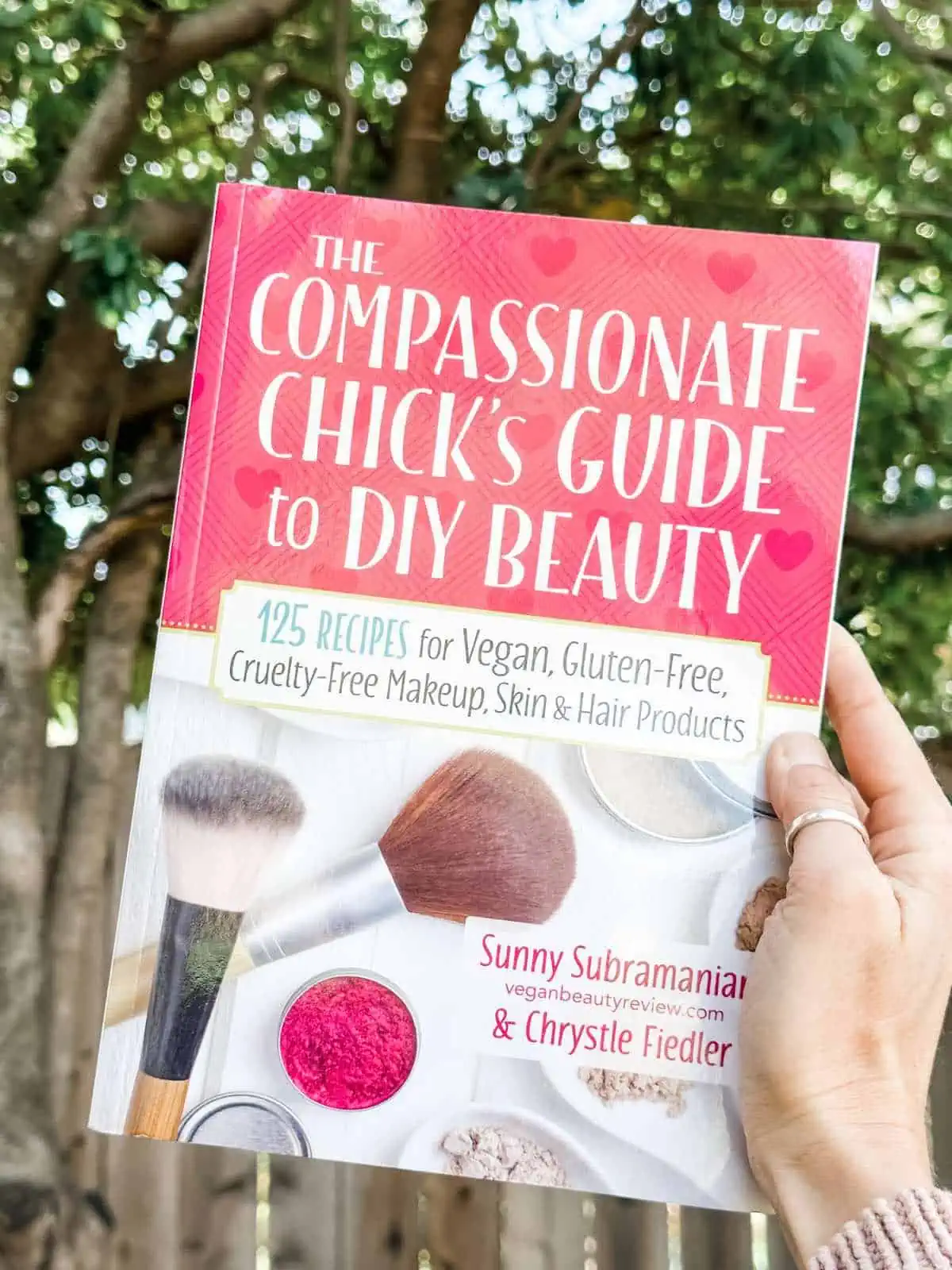
Vegan Beauty & Skincare Podcast Episode
In this episode of The Plant Powered-People Podcast, hosts Michelle Cehn and Toni Okamoto chat with longtime vegan beauty guru Sunny Subramanian about skincare and her top cruelty-free beauty tips.
Looking For More Vegan Beauty Guides?
- Vegan Body Lotion
- Vegan Perfume Guide
- Guide to Vegan Nail Polish
- Vegan Deodorants That Work
- Vegan Body Wash
- Best Vegan Shampoo Bars
- Vegan Lip Balms We Can’t Live Without
- Vegan Soap Guide
- Cruelty-Free Mascara for Kind & Luscious Lashes
- Vegan Sunscreen Guide
- Best Vegan Foundation
- Vegan Floss Guide
This vegan skincare guide is not sponsored by any of the brands or companies mentioned, and we only share products and companies we sincerely adore! Love a vegan skincare brand that you don’t see listed? Let us know in the comments!

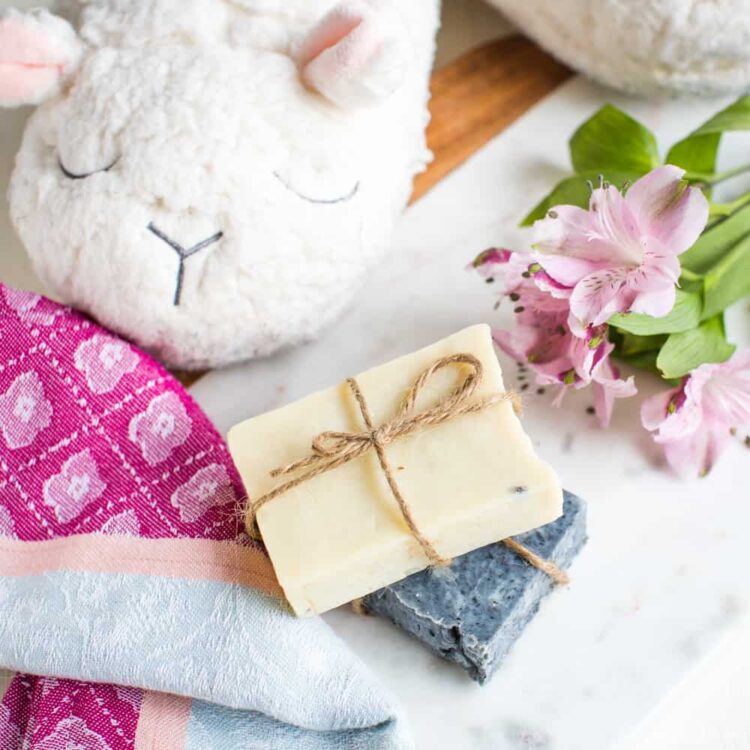
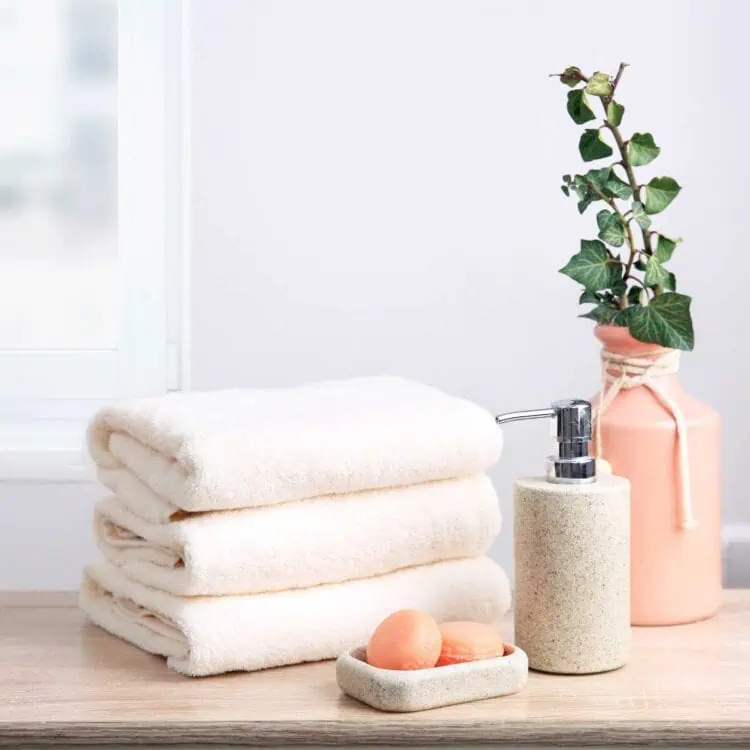

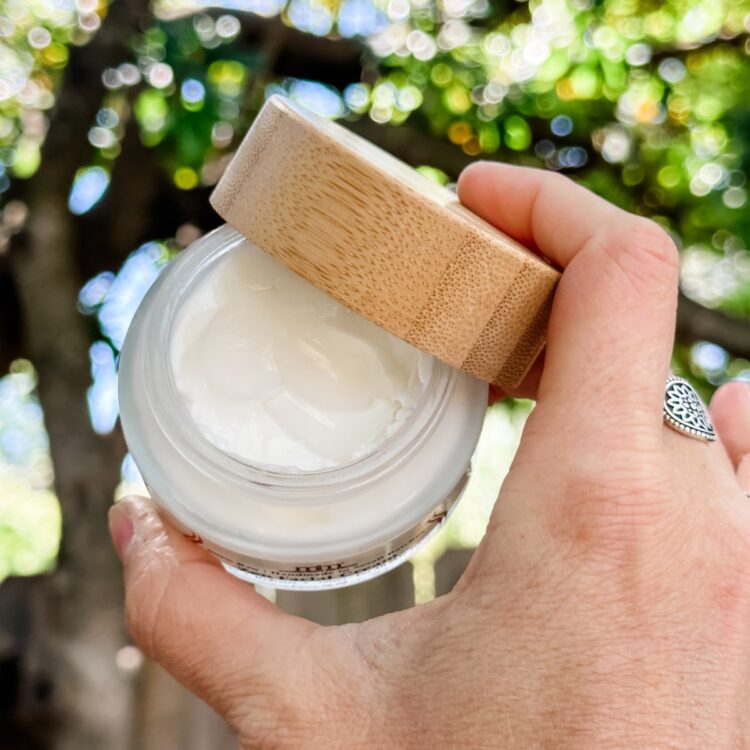

Leave a Comment
Hi Michelle, love your website! We are a new brand of organic, vegan skincare and I’d love to send you some products to try and possibly get included in your posts about vegan skincare.
Thank you! Laura